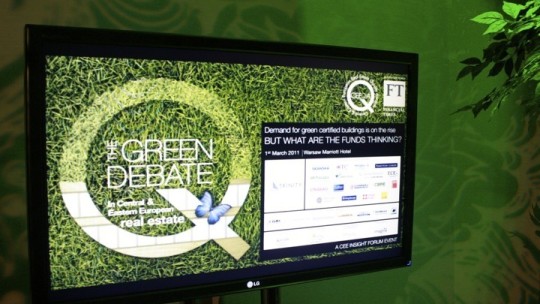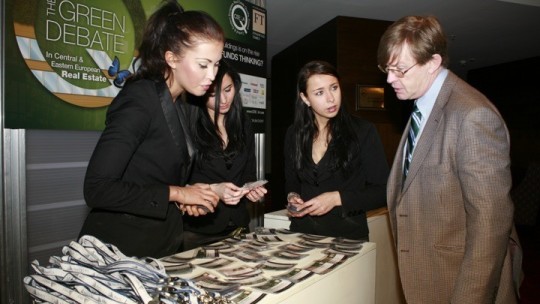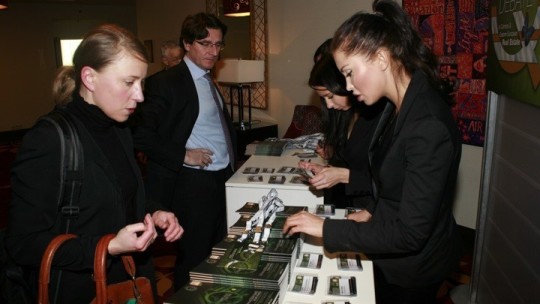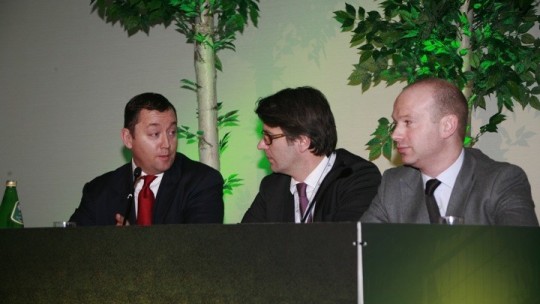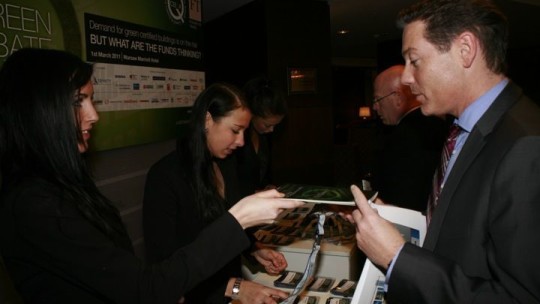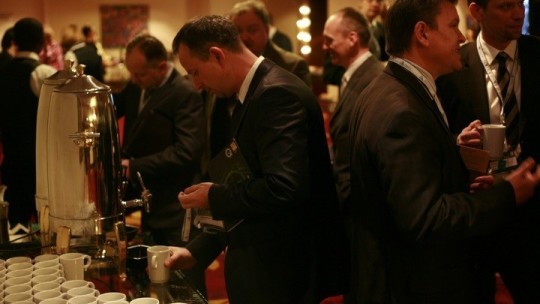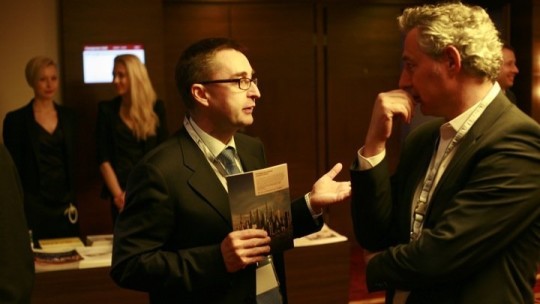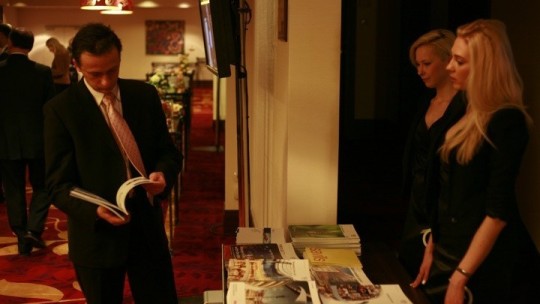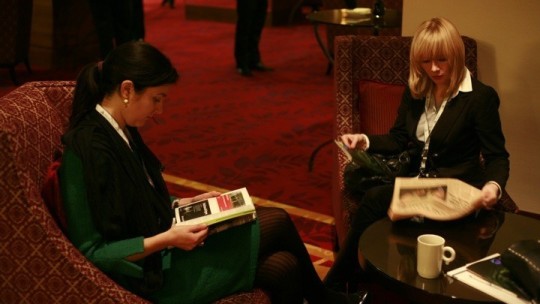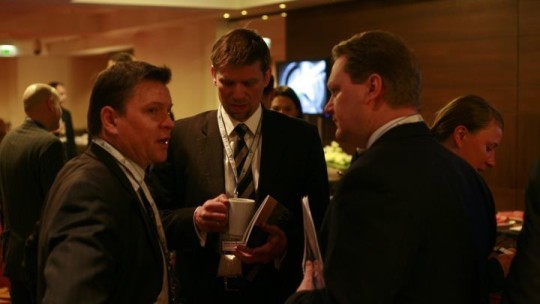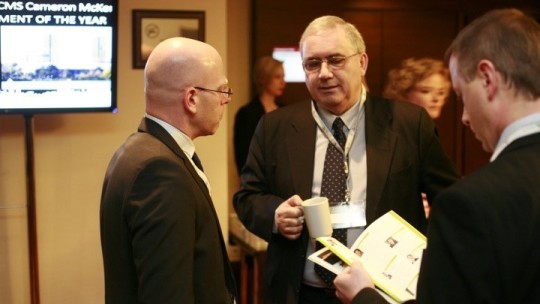The Green Debate 2
Green certified buildings are in increasing demand –
BUT WHAT ARE THE FUNDS THINKING?
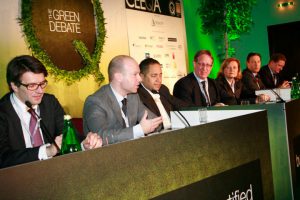 The clearest take-home from CEEQA’s first Insight Summit focused on sustainable development, THE CEEQA GREEN DEBATE held in February 2008 in Warsaw, was that ecological or ethical building (the word “sustainable” wasn’t yet common currency) sounded like a good idea – but “how do we fit the cost premium into the business model?”
The clearest take-home from CEEQA’s first Insight Summit focused on sustainable development, THE CEEQA GREEN DEBATE held in February 2008 in Warsaw, was that ecological or ethical building (the word “sustainable” wasn’t yet common currency) sounded like a good idea – but “how do we fit the cost premium into the business model?”
This was exactly what the investors said, almost unanimously, when pressed on how they could rise to the challenge. CEEQA had been an early responder on the issue of real estate and the environment with the event, putting the best brains together from EC Harris, Arup and the City of Warsaw to work out what it really meant for built asset developers, engineers, architects and investors, as well as for cities, including case studies and “far future” concepts.
The business case, simple
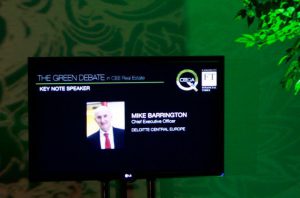 The second edition, THE GREEN DEBATE 2, held at the Warsaw Marriott Hotel in March 2011 and produced in association with the Financial Times, aimed to tackle this question head on. Subtitled Demand for Green Certified Buildings is Rising BUT WHAT ARE THE FUNDS THINKING?, it put the ethical case for green building to one side and focused exclusively on the business case for green building, to answer the investors’ question of how they could fit it into their business model. Because without their leadership and supply chain pressure, the issue was going nowhere.
The second edition, THE GREEN DEBATE 2, held at the Warsaw Marriott Hotel in March 2011 and produced in association with the Financial Times, aimed to tackle this question head on. Subtitled Demand for Green Certified Buildings is Rising BUT WHAT ARE THE FUNDS THINKING?, it put the ethical case for green building to one side and focused exclusively on the business case for green building, to answer the investors’ question of how they could fit it into their business model. Because without their leadership and supply chain pressure, the issue was going nowhere.
In the interim, CEEQA had gone into the trenches with the technical wizards of then-EC Harris (soon to back into Arcadis) to highlight what the business case was, or could be. The findings helped to attract some of the top regional and global investors and developers to participate in the debate.
Double deal
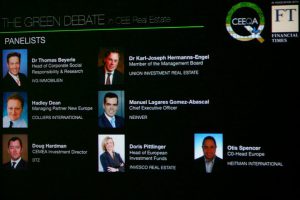 Two clear points emerged – operational costs savings brought about by lowering energy and building management costs which could be passed onto the tenant as well as impacting the bottom line; and secondly what later became known as the “talent magnet” of attracting tenants willing to pay a rental premium to be able to attract the best “millennial” talent to an environmentally conscious office building. Yes, office buildings were the principle focus at this stage of the sustainable development curve, with shopping centres and hotels throwing up greater technical challenges and less obvious business hooks.
Two clear points emerged – operational costs savings brought about by lowering energy and building management costs which could be passed onto the tenant as well as impacting the bottom line; and secondly what later became known as the “talent magnet” of attracting tenants willing to pay a rental premium to be able to attract the best “millennial” talent to an environmentally conscious office building. Yes, office buildings were the principle focus at this stage of the sustainable development curve, with shopping centres and hotels throwing up greater technical challenges and less obvious business hooks.
The race to the bottom line was on…
Top talent
 The Key Note for the gathering was provided by Mike Barrington, CEO of Deloitte Central Europe, with a straight forward message to developers and investors.
The Key Note for the gathering was provided by Mike Barrington, CEO of Deloitte Central Europe, with a straight forward message to developers and investors.
Ethics and the environment were on the agenda, but for major employers of top tier talent like Deloitte the key driver was a place of work where NextGen wanted to be and be seen in, and the trend was perceptibly towards first class environmental credentials. Those were the buildings that would be increasingly needed by leading employers, irrespective of their private views or bottom line concerns.
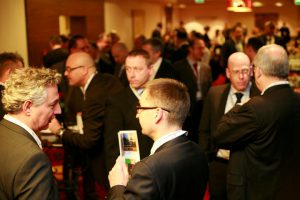 The trend was amply supported in presentations by Hadley Dean, CEO Eastern Europe of Colliers International, and Thomas Bayerle, Head of CSR at IVG Immobilien. And Clayton Ulrich, SVP Engineering of Hines, the renowned developer’s chief engineer, went further, saying that serious attention to environmental impact was already a given in any high quality building seeking high quality tenants, but there was a lot of “greenwash” out there seeking to tick the right boxes but not seeking the right solutions.
The trend was amply supported in presentations by Hadley Dean, CEO Eastern Europe of Colliers International, and Thomas Bayerle, Head of CSR at IVG Immobilien. And Clayton Ulrich, SVP Engineering of Hines, the renowned developer’s chief engineer, went further, saying that serious attention to environmental impact was already a given in any high quality building seeking high quality tenants, but there was a lot of “greenwash” out there seeking to tick the right boxes but not seeking the right solutions.
The event drew an audience of nearly 200 senior executives from the CEE and wider European real estate sector.
GREEN DEBATE 2 SPEAKERS & PANELISTS
KEY NOTE: Mike Barrington, CEO, Deloitte Central Europe.
PANELISTS: Dr. Thomas Beyerle, Head of Corporate Social Responsibility & Research, IVG Immobilien; Hadley Dean, Managing Partner New Europe, Colliers International; Doug Hardman, CEMEA Investment Director, DTZ: Dr. Karl-Joseph Hermanns-Engel, Member of the Management Board, Union Investment Real Estate; Manuel Lagares Gomez-Abascal, CEO, NEINVER; Doris Pittlinger, Head of European Investment Funds, Invesco Real Estate: Otis Spencer, CO-Head Europe, Heitman International; Noel Morrin, SVP Sustainability & Green Support, Colliers International; Mike Pearce, Partner, EC Harris: Paul Phillips, Managing Director Romania, Dinu Patriciu Global Services; Graham Reece, Head of Development Europe, Prologis; Charles Taylor, Managing Director Hungary, Head of Capital Markets CEE, Cushman & Wakefield: Clayton Ulrich, SVP Engineering Services, Hines; Agnes Vorbrodt-Schurma, CEO, Polish Green Building Council: Colin Waddell, Managing Director CEE, CB Richard Ellis.
MODERATOR: Richard Hallward, Managing Director, CEEQA.

